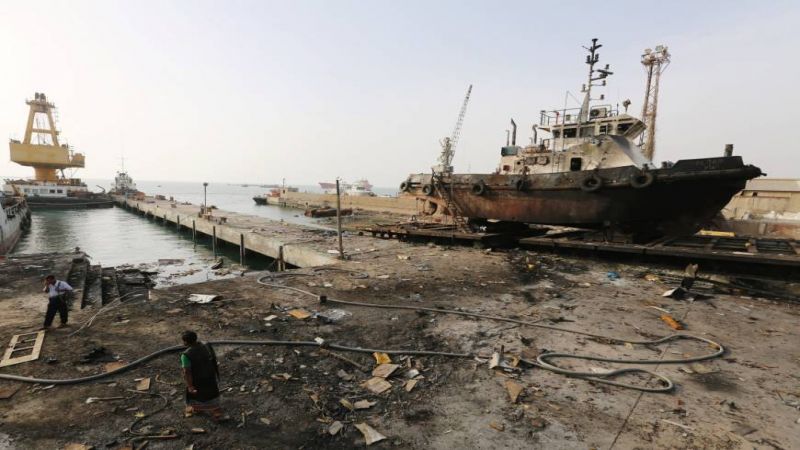
Local Editor
Several international aid groups warned on Thursday that the flashpoint Yemeni city at the heart of last year’s peace agreement signed in Sweden remains the most dangerous place in the war-torn, impoverished Arab country.
Fifteen aid agencies — including the Norwegian Refugee Council, CARE International, Medecins du Monde and Oxfam — say that since the U.N.-brokered deal last December, the port city of Hodeida and the surrounding province has seen 799 civilians killed and wounded.
This is “the highest toll countrywide,” the statement said, without providing a breakdown for the toll. “As aid agencies working in Yemen, we are outraged that after almost five years, Yemenis continue to suffer from an incalculable humanitarian crisis fueled by conflict.”
“Civilians continue to bear the brunt of the violence,” the agencies said. “Houses, farms, markets and health facilities are damaged and destroyed, worsening an already dire humanitarian situation.”
A Saudi-led coalition launched a military campaign in 2015 to forcefully reinstate the resigned regime of Abd Rabbu Mansour Hadi and has since waged war against the Houthis. The fighting in the Arab world’s poorest country has also left millions suffering from food and medical care shortages and pushed the country to the brink of famine.
The warring sides signed a U.N.-brokered agreement last December in Sweden that included a cease-fire for Hodeida and an exchange of more than 15,000 prisoners. But the deal was never fully implemented.
“Families continue to flee for their lives, with close to 390,000 Yemenis uprooted from their homes across the country so far in 2019,” the aid groups said, highlighting that along with Hodeida, the provinces of Taiz, Dhale and Hajjah top the most dangerous list.
The statement said that though the overall death toll, with 1,008 civilians killed by armed violence so far this year across all of Yemen, was down from the 2,049 killed last year, the country is still the world’s biggest humanitarian crisis. Ten million people face starvation and 7 million are malnourished, it added.
“If urgent action is not taken, we could see another five years of conflict, leading to a greater catastrophe for civilians,” the aid groups said.
Over the summer, infighting broke out between Hadi’s forces and the southern separatist militias, backed by the United Arab Emirates. The separatists, who are the president’s nominal allies in the Saudi-led coalition, overran the southern port city of Aden, and key southern provinces.
The clashes threatened to undermine the coalition and added another complex layer to the civil war. Saudi Arabia managed to bring Hadi’s side and the separatists together and they signed a peace agreement in Riyadh last month to stop the infighting.
Later on Thursday, the New York-based Human Rights Watch criticized that agreement, saying it failed to address “serious” human rights abuses, including arbitrary detentions and forced disappearance of at least 40 people, including a child. At least 15 of them were abducted by the separatist forces and later released, in September.
These agencies have been “abusing local residents with impunity,” said Michael Page, deputy Middle East director at HRW. “The parties to the agreement need to start rebuilding the trust that has all but vanished due to abuses by these security agencies.”
Source: News Agencies, Edited by Website Team